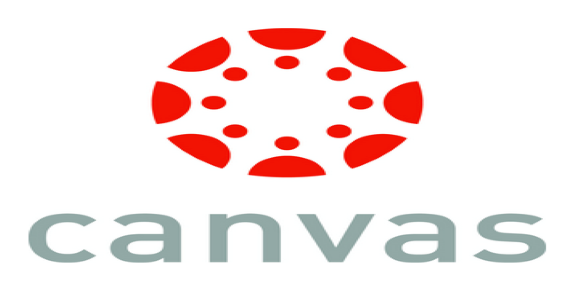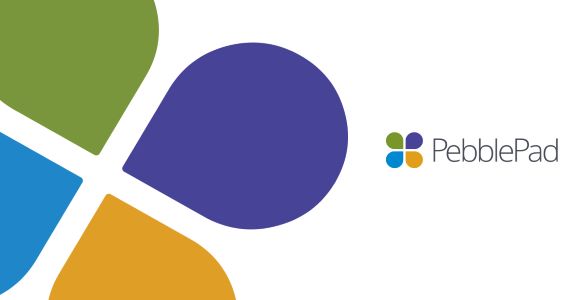Programme 2023
For the full HEFi23 Conference programme including room numbers please see our dedicated Conference Website.
Conference Programme
|
08:30—09:15
|
Registration and Refreshments
|
|
09:30—10:15
|
Keynote:
Education Gain: within and beyond the metrics - Dr Camille Kandiko Howson
|
|
10:15—10:45
|
Keynote:
Question and Answer Session, Dr Camille Kandiko Howson
|
|
11:00—12:00
|
Morning Parallel Sessions
See below for further session details
|
|
12:15-12:45
|
Lunch sitting 1 or Lightning Session 1
See below for further session details
|
|
13:00-13:30
|
Lunch sitting 2 or Lightning Session 2
See below for further session details
|
|
14:00-15:00
|
Parallel Discussion Groups
See below for further session details
|
|
15:10—16:10
|
Afternoon Parallel Paper Sessions
See below for further session details
|
|
16:20-17:00
|
HEFi23 Closing Reflections - Educational Gain: Beyond the rhetoric
|
|
17:00—18:00
|
Drinks Reception and Networking
|
Morning Parallel Sessions
1. Investigating the student experience of skills development in an undergraduate chemistry degree - Dylan P. Williams and Daniel Thomas
2. Learning and retention through repetition and retrieval practice in Undergraduate engineering students - Dr Majid Malboubi and Noshaba Anbreen
3. Collaborative Poster Preparation Designed to Encourage Engagement of Chemistry Students with UN Sustainable Development Goals - Laura Hancock, Dylan Williams, Natalie Rowley, John Wilkie
1. Get Ahead in Government: Working with Alumni to Empower Underrepresented Students - Kerrie Myers and Jessica Cooper
2. Developing Reflective Practitioners in Partnership with Practice - Dr Kat Salter and Dr Andrea Frank
3. Developing independent critical and ethical thinkers: case studies from the field of Drama and Theatre Arts - Dr Ellen Redling
1. What Metrics Don’t Say: evaluating innovative oral assessment approaches to defeat student’s anxiety - Professor Fabio Aricò
2. Assessing interdisciplinary and transdisciplinary assignments - Dr Abigail Bellamy-Carter, Liberal Arts and Natural Sciences, Dr Tim Jackson, Department of Electronic, Electrical, and Systems Engineering, Dr Adam Matthews, School of Education and Dr Simon Scott, Liberal Arts and Natural Science
3. A systematic qualitative review of effective essay-writing feedback practices - Dr Evelyn Svingen and Dr Rodolfo Leyva
1. Measuring the ‘golden thread’: student engagement, career thinking and Graduate Outcomes - Fiona Cobb and Katy Coyte
2. Graduate Outcomes: Do we help our graduates go out into the ‘real world’? - Kelly Smith
3. Uncovering employers’ views on the impact of work-based learning - Lesley Batty, Matt Edwards, Arooj Khan, Nicklas Lindstrom
Parallel Lightning Sessions or lunch sittings
1. Student design of the curriculum: Flipped resources for first year teaching - Leah Worthington, Imogen Carter and Jerry Pritchard
2. Students’ perception on group work: one size does not fit all - Dr Mary Dawood
3. Dissertation project marking: should the supervisor be involved? - Leanne Taylor-Smith & Juliet Coates
4. Can we close the mastery gap with self-reflection and second chance assessments? - Dr Austin Tomlinson
5. Ideas and opportunities for embedding self-reflective practice - Debbie Cunningham, Eleanor Cull and Roisin Madigan
1. Encouraging active engagement in students using EdTech - Edd Kyi, Chris Avins and Thomas Scone
2. How a Corporate Mentor Partner Program resulted in educational gains and enhanced employability - Patricia Perlman-Dee
3. Can Trees Time Travel? An Outreach Activity for Visiting Secondary School Students - Samantha Dobbie, Darren Marsh
4. Supporting dyslexic learners through Personal Academic Tutorials - Emma Hamilton
5. Talking heads: A project to co-create videos for increasing cultural competency of staff and students at the University of Birmingham - Carlette Norwood - PhD Social Work/Social Care, Leah Bedwin (BA Pol, Pol + Econ w Yr Com Sc) and Hiu Kei Priscilla Kam (BA Sociology and Criminology)
Parallel Discussion Groups
1. The politics of learning gain: a case study of policy into practice - Professor Chris Millward and Dr Adam Matthews
2. Schrodinger’s Gain: Do Learning/Educational Gains need to be observable to be measurable? - Eileen Pollard, Stephanie Aldred, Orlagh McCabe and Stephen Powell
1. Between Corona and ChatGPT - Are we really heading towards better and more authentic assessments? - Dr Jon Wolf Mueller
2. Synoptic assessment as an authentic learning approach – the effectiveness of student co-creation - Dr Sam Cruchley and Dr Mike Jenkins
1. Investigation of current video technology use by Higher Education Academics relating to teaching delivery: Exploring the lived experiences of academics and how we create inclusive learning opportunities - Paul Trueman
2. Creating an engaging environment using digital games-based pedagogy - Dr Anupman Mehta
1. The importance of developing a sense of student belonging for success and progression at university – impact of student engagement in non-curricular activities - Dr Teresa Thomas and Dr Clare Ray
2. Reflecting on our experiences of online assessment transition, where do we go next? - Linda Lefievre and Mark Hancock
1. Building a Pipeline for Ethical Skills Development: From Academia to Industry - Daniel Donaldson, Carl Anthony, Daniel Espino, Aziza Mahomed and Kamilya Suleymenova
2. Masters students’ experiences with an active classroom - Shailen Popat, MSc students and Alumni

PebblePad is an award-winning online platform helping higher education institutions deliver student-centered learning at scale. Students from over 150 institutions use PebblePad to articulate and evidence learning, skills and competencies required for success during and beyond higher education.
PebblePad eportfolio solutions supports reflective practice and self-assessment throughout the learner journey. Structured templates facilitate learning, allowing educators to design task-based portfolio templates to support professional learning outcomes and accreditation.
Assessment supports traditional grading, rubrics, standardised feedback, peer review, and capability mapping. External work-based supervisors, assessors and accreditation bodies can securely access learners’ work for assessment and feedback in real-time.

Powerful integration with a Learning Management System (LMS) means greater security through single sign-on (SSO), easier administration with synchronisation of members and roles and scalable assessment with the ability to pass grades from PebblePad to the LMS.
Visit http://www.pebblepad.co.uk for more information on student-centered learning with PebblePad eportfolios.
Afternoon Parallel Sessions
1. The promotion of critical thinking in the context of ‘educational gain’ - Rong Wei
2. Individualism and collectivism in the international learning experience of Chinese students - Adrian Campbell, Elena Denezhkina, Wenli Fu
3. Identifying the intangibles: Why we need to look at the intangibles that drive mature students at university? - Sue Lee
1. The impact of participation in a student-led IPE Society on transition to practice and early career experience - Nafeesa Hussain, Freya Beardmore, Ekrahh Dawood, Gaby Wong, Robert Barry, Sharon Buckley, Christine Hirsch and Emily Audet
2. Students Leading on research: The Selly Oak Project - Zena Lynch and Surindar Dhesi
3. Co-designing for belonging using equity- and human-centred Design Thinking - Dr Ann Kaegi
1. Pedagogy in the ‘Age of Speed’: teaching & learning in a world enabled by AI and a new ‘politics of speed’ - Christopher Macallister and Antonia Paterson
2. Why do students struggle to engage online and what can we do about it? - Gabi Witthaus
3. Pre-lab Videos: Enhancing Student Learning and Laboratory Experience - Helen Onyeaka, Associate Professor
1. Pedagogical implications of group work in modules - Arpita Ghosh, Atisha Ghosh and Anastasia Papadopoulou
2. Managing Conflict Resolution in Groupwork - Wendy Yanez Pazmino, Dr. Rami Bahsoon and Dr. Matthew Leeke
3. “Making learning happen”: the missing link between formative and summative - Dr Maria Psyllou and Dr Kamilya Suleymenova (in collaboration with Dr Mary Dawood)